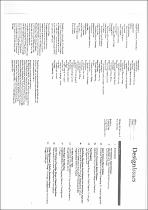JavaScript is disabled for your browser. Some features of this site may not work without it.
- ResearchSpace
- →
- Research Publications/Outputs
- →
- Journal Articles
- →
- View Item
| dc.contributor.author |
Winschiers-Theophilus, H

|
|
| dc.contributor.author |
Bidwell, NJ

|
|
| dc.contributor.author |
Blake, E

|
|
| dc.date.accessioned | 2013-01-28T08:42:55Z | |
| dc.date.available | 2013-01-28T08:42:55Z | |
| dc.date.issued | 2012-07 | |
| dc.identifier.citation | Winschiers-Theophilus, H, Bidwell, NJ and Blake, E. 2012. Community consensus: Design beyond participation. Design Issues, vol. 28(3), pp. 89-100 | en_US |
| dc.identifier.issn | 0747-9360 | |
| dc.identifier.uri | http://www.mitpressjournals.org/doi/pdf/10.1162/DESI_a_00164 | |
| dc.identifier.uri | http://hdl.handle.net/10204/6463 | |
| dc.description | Copyright: 2012 MIT Press. Published in Design Issues, vol. 28(3), pp. 89-100 | en_US |
| dc.description.abstract | The importance of user involvement in design activities has been widely recognized in efforts to design more usable and acceptable systems. Tools and methods used in some approaches, such as user-centered, interaction, and Participatory Design, shifted the focus to the user; nevertheless, "user involvement" remains a vague concept and a highly varied practice. Value-based approaches have heightened awareness of the need to explicitly redefine who is making the design decisions and to explicate what design processes say about users. However, to date, design discourse has merely scratched the surface in unpacking meanings about participation and the ways these meanings affect design outcomes. We rarely discuss the assumptions inherent in concepts related to being human, whether as an individual or a community member (i.e., participating with others within a community), nor do we articulate how participation and design activities together define the identity of the user/community member as "the designer from within" and "the technologist/researcher/designer" as the "designer from outside" not originating from the community in which the design takes place. In this article, we propose that grappling with meanings about participation is critical to design, and in particular, to cross-cultural design. Societies and groups based on other value systems conceptualize "participation" differently, and this understanding directly affects the intercultural design process. Thus, we explore the concept of participation in design from a different viewpoint. We draw on an African philosophy of humanness- "Ubuntu," as lived through African rural community practices - to re-frame Participatory Design paradigms and methods. We reflect on our own Participatory Design interventions in Southern African communities as we explore the theoretical grounds to draw methodological conclusions for design. We then propose guidelines that might enable technologists/researchers to respond more effectively in developing contextually appropriate and consensual methods in design with communities. | en_US |
| dc.language.iso | en | en_US |
| dc.publisher | MIT Press | en_US |
| dc.relation.ispartofseries | Workflow;10216 | |
| dc.subject | Participatory design methods | en_US |
| dc.subject | Ubuntu | en_US |
| dc.subject | Cultural value systems | en_US |
| dc.subject | Community consensus | en_US |
| dc.title | Community consensus: Design beyond participation | en_US |
| dc.type | Article | en_US |
| dc.identifier.apacitation | Winschiers-Theophilus, H., Bidwell, N., & Blake, E. (2012). Community consensus: Design beyond participation. http://hdl.handle.net/10204/6463 | en_ZA |
| dc.identifier.chicagocitation | Winschiers-Theophilus, H, NJ Bidwell, and E Blake "Community consensus: Design beyond participation." (2012) http://hdl.handle.net/10204/6463 | en_ZA |
| dc.identifier.vancouvercitation | Winschiers-Theophilus H, Bidwell N, Blake E. Community consensus: Design beyond participation. 2012; http://hdl.handle.net/10204/6463. | en_ZA |
| dc.identifier.ris | TY - Article AU - Winschiers-Theophilus, H AU - Bidwell, NJ AU - Blake, E AB - The importance of user involvement in design activities has been widely recognized in efforts to design more usable and acceptable systems. Tools and methods used in some approaches, such as user-centered, interaction, and Participatory Design, shifted the focus to the user; nevertheless, "user involvement" remains a vague concept and a highly varied practice. Value-based approaches have heightened awareness of the need to explicitly redefine who is making the design decisions and to explicate what design processes say about users. However, to date, design discourse has merely scratched the surface in unpacking meanings about participation and the ways these meanings affect design outcomes. We rarely discuss the assumptions inherent in concepts related to being human, whether as an individual or a community member (i.e., participating with others within a community), nor do we articulate how participation and design activities together define the identity of the user/community member as "the designer from within" and "the technologist/researcher/designer" as the "designer from outside" not originating from the community in which the design takes place. In this article, we propose that grappling with meanings about participation is critical to design, and in particular, to cross-cultural design. Societies and groups based on other value systems conceptualize "participation" differently, and this understanding directly affects the intercultural design process. Thus, we explore the concept of participation in design from a different viewpoint. We draw on an African philosophy of humanness- "Ubuntu," as lived through African rural community practices - to re-frame Participatory Design paradigms and methods. We reflect on our own Participatory Design interventions in Southern African communities as we explore the theoretical grounds to draw methodological conclusions for design. We then propose guidelines that might enable technologists/researchers to respond more effectively in developing contextually appropriate and consensual methods in design with communities. DA - 2012-07 DB - ResearchSpace DP - CSIR KW - Participatory design methods KW - Ubuntu KW - Cultural value systems KW - Community consensus LK - https://researchspace.csir.co.za PY - 2012 SM - 0747-9360 T1 - Community consensus: Design beyond participation TI - Community consensus: Design beyond participation UR - http://hdl.handle.net/10204/6463 ER - | en_ZA |






